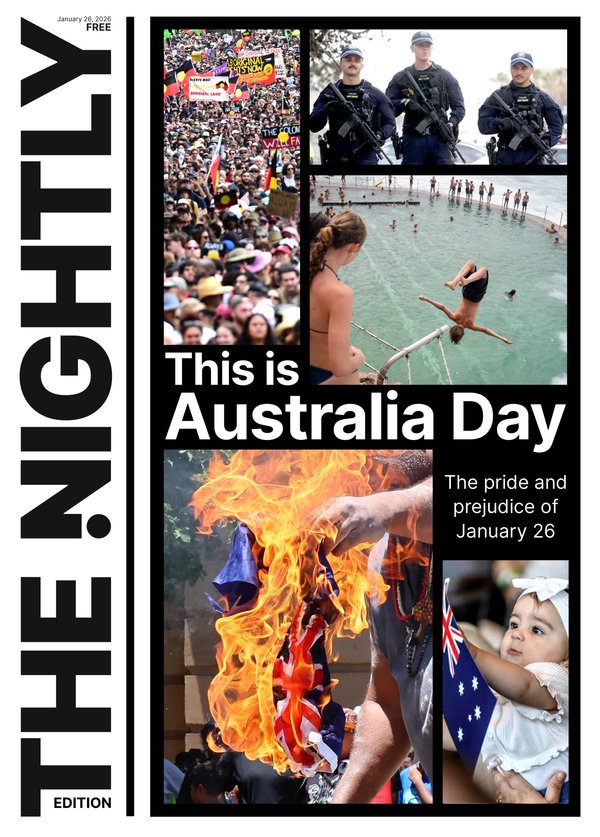Blue Lights, Sherlock and House of the Dragon’s Sian Brooke did it little by little
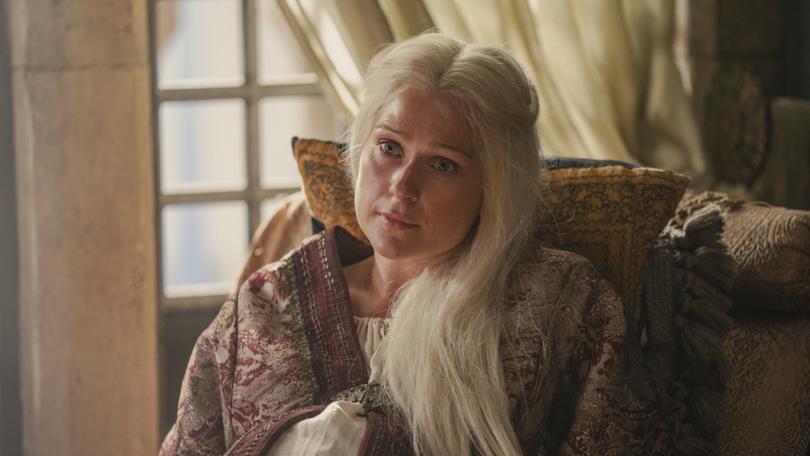
When it comes to shock factor, House of the Dragon came storming out of the gates.
In its very first episode, the Game of Thrones spin-off featured a childbirth scene in which a character, Queen Aemma Targaryen, died horribly after she endured a grisly C-section, screaming in agony as her baby was ripped out of her, sheathed in her blood.
The scene kicked off a debate on how much is too much when it came to onscreen violence, and the face of that eye-popping moment was Sian Brooke, the English actor who played Aemma for one episode but whose anguish fans never forgot.
Sign up to The Nightly's newsletters.
Get the first look at the digital newspaper, curated daily stories and breaking headlines delivered to your inbox.
By continuing you agree to our Terms and Privacy Policy.Brooke returned in the second season finale for a cameo in a flashback, but, as she laughingly pointed out, “I was mute and dead!”.
Brooke told The Nightly, as an actor, she would’ve loved to have stuck around for a few more episodes, but there’s also no denying the power of her work in those few scenes. She burrowed into the consciousness of everyone who watched that opener.
Brooke has that effect in every role she’s played. No matter how small the part, she makes her presence known — and she doesn’t need to be screaming in pain to do it.
For the past two decades, Brooke has been a steady presence on British TV, popping up for guest appearances on a range of shows including Doc Martin, Lewis and Hotel Babylon, and now as the lead of popular crime series Blue Lights.
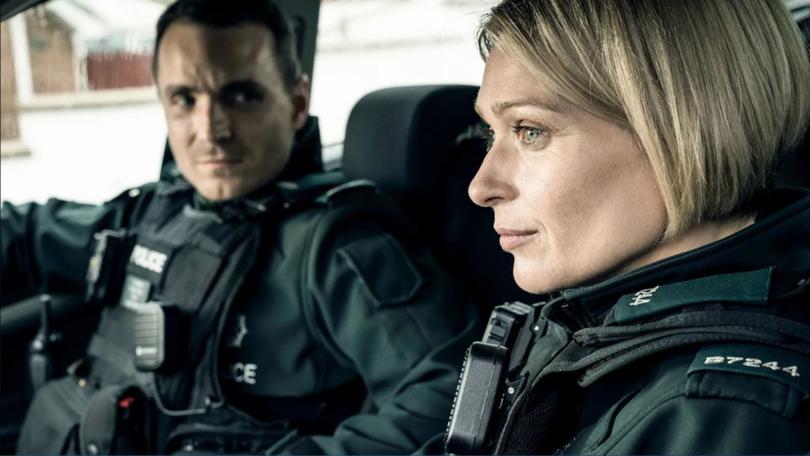
But it was her performance as Sherlock’s unhinged sister Eurus that really changed the game.
Across the final series, she unsettled audiences as she took on the persona of different people, before the final confrontation between her character and the world’s most famous detective. And the thing to remember is that Sherlock, at that time, was a global phenomenon.
“Sherlock was probably one of my favourite experiences because of the writing, which was just so incredibly well-crafted,” Brooke told The Nightly. “And the show, it was mental. It was a period in British television where you didn’t have all the streaming services you do now, so it was just so impactful because everybody was onboard with it.”
The year before her time on Sherlock, Brooke had appeared in a National Theatre production of Hamlet at the Barbican Centre. She played Ophelia to Benedict Cumberbatch’s Danish prince.
“It was like this fever,” she added. “It was mental for him. Even doing Hamlet, that itself was crazy because there was so much attention to him playing Hamlet and being part of that company was really special.”
Eurus was wily, smart and a sociopath. She had similar traits to Sherlock, but no moral compass and a few screws loose.
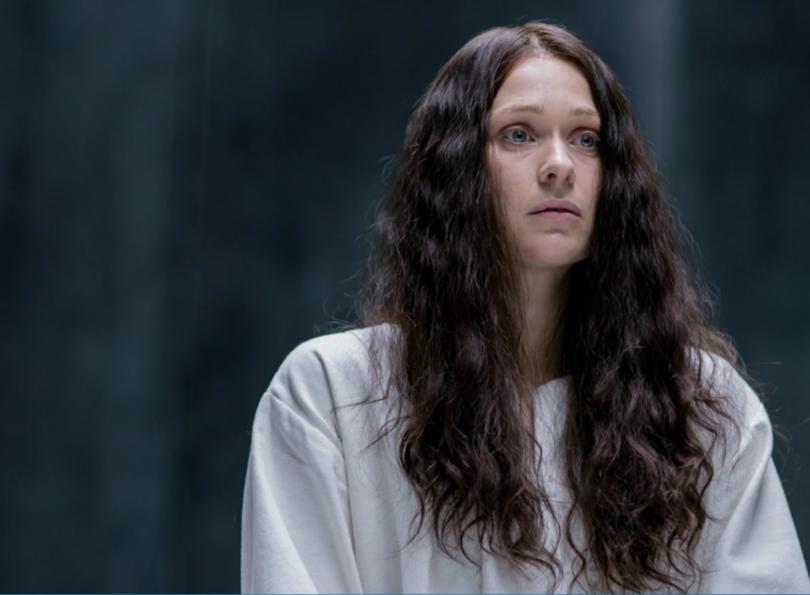
“I don’t know what it says about me, but I really enjoyed playing the psychotic killer!” she said. “All these things you would never, ever, obviously do in real life, but also she was quite hard to play. She’s devoid of any emotion.”
Where Eurus was aloof and off-putting, Brooke is warm and open. Like many actors, she keeps her emotions close to the surface. The effect when you speak with her is like you’ve been friends for years.
When Brooke was younger, after she had graduated from the UK’s storied thespian training ground, the Royal Academy of Dramatic Art, she was faced with this dichotomy of needing to have those feelings be accessible for the craft but also needing to be thick-skinned to handle all the rejection that comes with the industry.
Now in her forties, she said she has much more resilience and isn’t half as bothered by the same things. “Also, you just don’t put up with as much crap when you get to your forties,” she added.
Even though it wasn’t until the past decade before she gained international recognition, Brooke counted herself lucky.
“I’ve worked and I’ve grafted and I started out in theatre and that was, for me, the best foundation,” she said. And little by little, role by role, she has found success. It wasn’t a tidal wave, but that meant it’s been a much more sustainable path. “I don’t know how people cope with that sort of notoriety when they’re younger.”
And now, she’s the lead on Blue Lights, a Belfast-set cop show that’s already had two seasons and airs on SBS in Australia. The series has been an underdog favourite despite not having the massive marketing budget of other more high-profile productions.
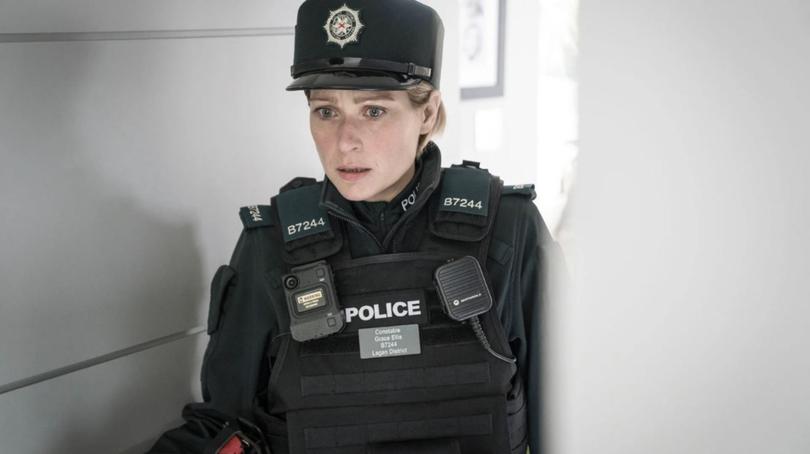
Brooke plays Grace Ellis, a woman who joined the police force after having already had a career as a social worker. It’s a different dynamic to what you more commonly see in a cop procedural, a lived-in character who feels as if she existed before her first scene, and who continues to exist when she’s not on screen.
“I’m always drawn to things that are character-driven, that’s why I like doing what I do,” she said. “I could just people-watch all day.
“I just knew from the moment I started reading it, I was like, ‘Ah, this is very special because the writers have crafted each character so specifically’.”
There are so many cop shows and the fact Blue Lights has broken through when so many others meander in the middle is a testament to the writers but it’s also down to Brooke’s performance, one that is incredibly compassionate and compelling.
Grace is not bluster and hardness, she’s full of empathy. “When we started making (the show), we were just coming out of Covid and the world was such a strange place. So, to play somebody who has such a strong social conscience and won’t back down, will get herself in trouble because she really believes in right and wrong, it’s great.”
“We finished season two in December and I miss that lady in my life.”
Luckily for Brooke, and for us, Blue Lights has already been commissioned for a third and fourth series.

